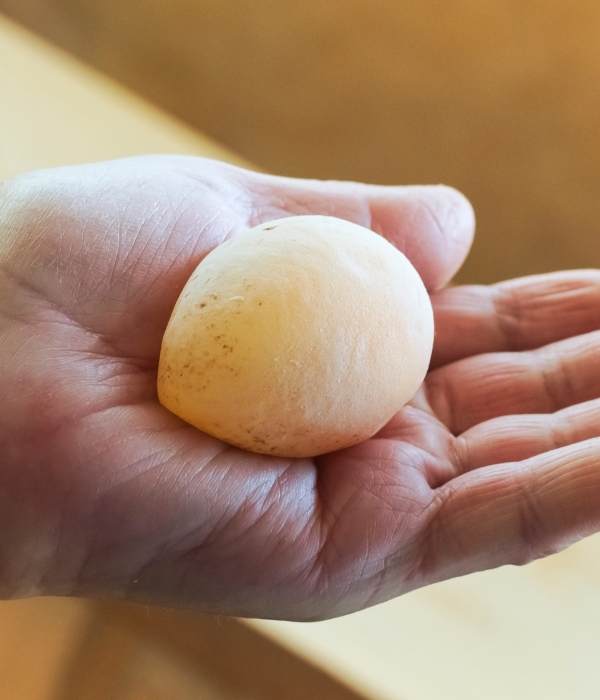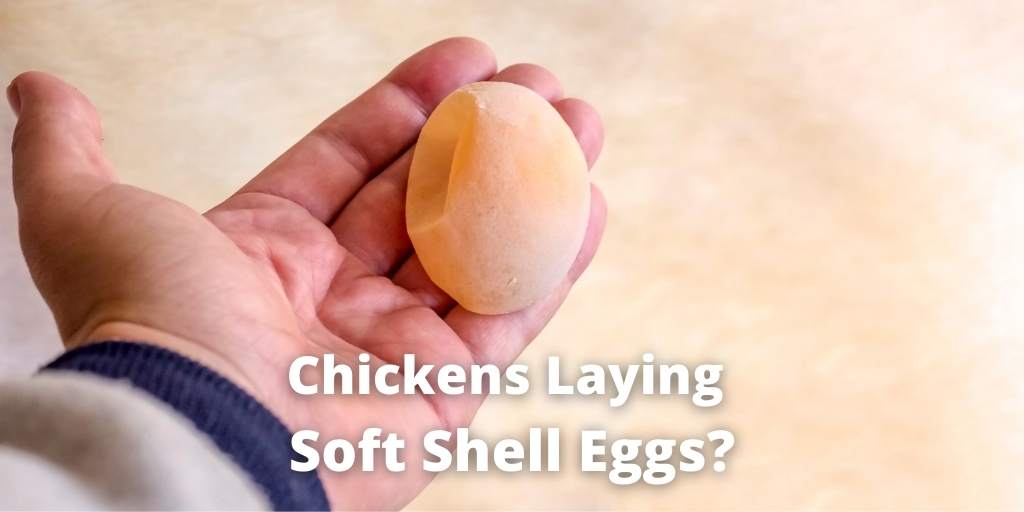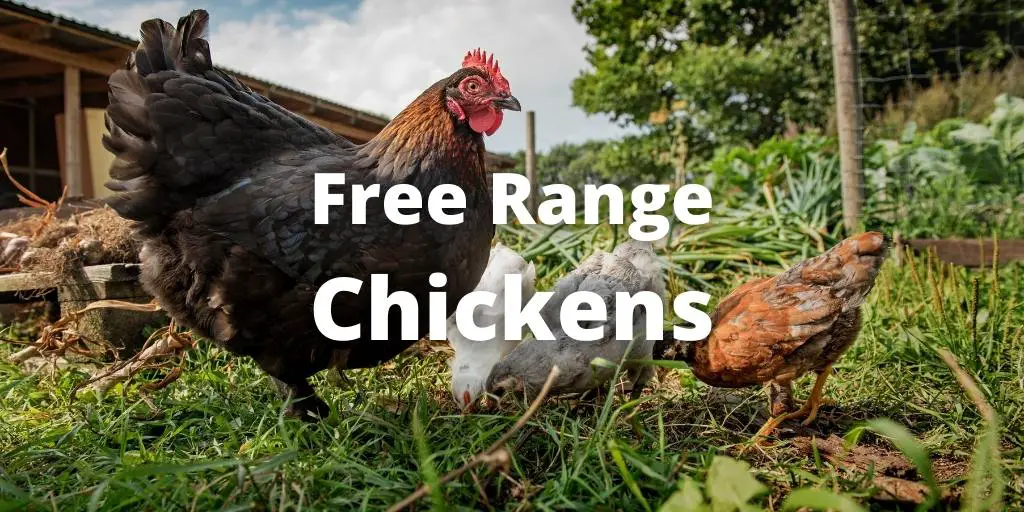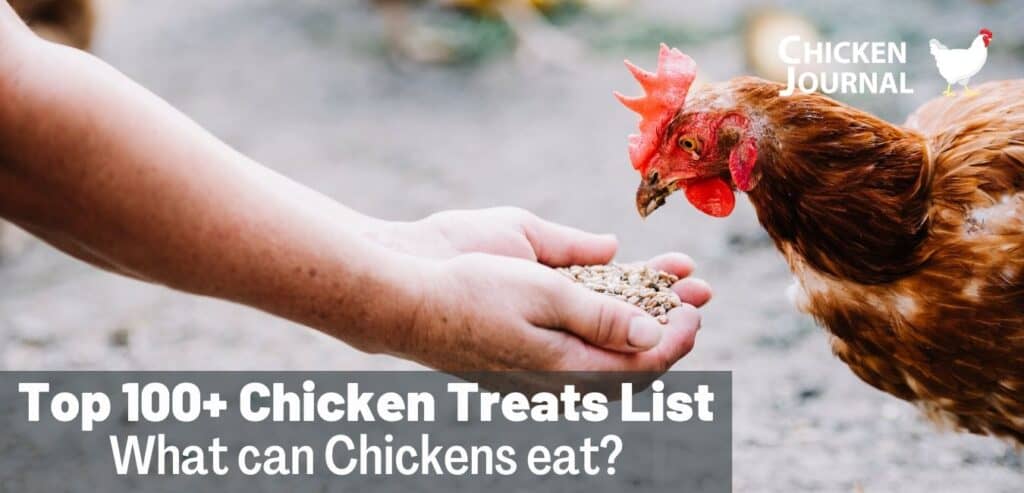Why are my chickens laying soft shell eggs? Well, it’s a common question by most chicken raisers.
This guide has explained all about chickens laying eggs with soft shells. It covers the causes, treatment, a list of best supplements, and common FAQs on chickens laying thin shell eggs.
Soft-Shelled Chicken Eggs
Eggs with thin and soft shells are a common problem in backyard chicken farming. A chicken’s eggshell is made of calcium carbonate, formed when an egg is made in a hen’s body. This process is called calcification.
The eggshell is produced by the oviduct or third section of a hen’s reproductive tract and is the first thing the chick encounters.
Calcification is a very complicated process in which calcium carbonate is added to an organic matrix, mainly made up of keratin, and the resulting product forms an eggshell that protects the developing embryo.
When insufficient calcium is available for this calcification process to work properly, eggs will be laid with thin shells. That’s why egg-laying chickens always need some additional vitamin and calcium supplements.
Chickens Laying Soft Shell Eggs
If insufficient calcium is available for the calcification process, chickens will lay eggs with a soft and thin shells.
This can occur in several ways-
Layer pellets formulated for egg-laying chickens are the best way to ensure that your hens have an adequate source of calcium. Layer pellets will contain at least 12% calcium.
It is not recommended to feed chickens eggshells as a source of calcium because the shells are only 20% calcium, making them even more deficient in an already insufficient amount of calcium for calcification.
Chicken eggshells would also be a waste because a lot of energy was used to produce them.
Why do Chickens Lay Soft Shell Eggs? – Common Reasons
One possible reason for chickens laying soft-shell eggs might be because they lack certain nutrients, such as biotin or vitamin D3.
The level of these vitamins within a chicken’s diet can affect its egg-laying ability and quality – if levels are too low, they won’t be able to lay eggs with the correct shell quality.
Chickens requiring more biotin will produce eggs with thin shells, whereas if there is a deficiency of vitamin D3, it can also lead to thin-shelled eggs.
Other possible reasons for chickens laying soft-shell eggs could be dietary deficiencies (e.g., calcium or vitamin D3), increased lighting causing an imbalance within the chicken’s body, and infections.
Broiler breeders are known to produce some of the thinnest shelled eggs on record because their high metabolisms require higher calcium levels than what they receive on average in poultry feed mixtures and scratch feed.
The chicken’s instinct is to eat eggs that are easy to break, which causes the hen to lay soft-shelled eggs. Chickens usually eat their soft shell eggs within one hour of laying them if a human is not watching them.
Treatment of Chickens’ Soft and Thin Shell Eggs

Despite there being no treatment for the shells of chickens once they have laid their eggs, there are certain things you can do to prevent it from happening again.
- Ensure your chickens are fed layer pellets or other forms of balanced poultry feed.
- Ensure your chickens get enough vitamin D3 and biotin in their daily diets.
- Extend the dark period for your hens to encourage them to produce more calcium for eggshell production, but ensure that you provide at least 12 hours of light daily because this is what they need to lay eggs.
Top 5 Best Calcium Supplements for Chickens
Here are a few amazing calcium supplements for chickens laying soft shell eggs-
1. Manna Pro Crushed Oyster Shell | Egg-Laying Chickens | 5 LB
This Manna Pro Crushed Oyster Shell comes with a free oyster shell crusher. That’s not all; this product is also made of fine-processed crushed oyster shells to provide the most premium calcium for your chickens.
Provides essential calcium for laying hens; helps to form eggshells and promotes bone development in young animals.
- FOR LAYING POULTRY: Our crushed oyster shells are...
- OYSTER SHELL & CORAL CALCIUM: Our chicken oyster shells...
- STRONGER EGGSHELLS: Our crushed oyster shells are an...
- HEAT TREATED FOR PURITY:Our oyster shells for chickens...
- MADE IN USA: Our chicken food is proudly made in the...
Last update on 2025-07-17 / Affiliate links / Images from Amazon Product Advertising API
Product Features
- Made of finely processed crushed oyster shells, which provide more premium calcium for your chickens.
- Provides essential calcium for laying hens; helps to form eggshells and promotes bone development in young animals.
- A free Oyster shell crusher is provided too!
Pros
- High-quality product.
- Comes with a free Oyster shell crusher supplement.
- Easy to use and store.
- Provides essential calcium for laying hens; helps to form eggshells and promotes bone development in young animals.
Cons
- None known.
2. Purina Oyster Shell Poultry Supplement, 5 lb bag
The Purina Oyster Shell is a well-balanced poultry diet that provides the minerals essential for good health, including calcium.
It contains a poultry-approved form of calcium to assist in egg production and provide sound skeletal development.
No products found.
Product Features
- This well-balanced poultry diet provides the minerals essential for good health, including Calcium.
- It contains a poultry-approved form of calcium to assist in egg production and provide sound skeletal development.
Pros
- The supplement is made with an oyster shell, a great calcium source.
- Assists in egg production and provides sound skeletal development
- Purina brand is a high-quality brand.
Cons
- Comes in small quantities.
- It can exclusively be used by laying hens.
3. Small Pet Select Flaked Oyster Shell-Calcium Supplement for Chickens & Ducks
The Small Pet Select Flaked oyster shell is a poultry feed supplement that can be used as a dietary source of calcium for pet birds and animals such as chickens, ducks, etc.
The most common use for this product is to help with egg-laying issues in adult females due to a lack of calcium intake.
There are also various other benefits from proper calcium supplementation, such as; enhancing the immune system, preventing seizures and muscle spasms, promoting blood clotting and healthy bones and teeth formation, and more!
Provides essential calcium for laying hens; helps to form eggshells and promotes bone development in young animals.
- Flaked Oyster and Seashell Mix
- Oyster shell supplements calcium for laying hens
- Increases strength of eggshells, making for a healthier...
- Promotes healthy plumage of chickens, ducks, other...
- 100% satisfaction guarantee**
Last update on 2025-07-16 / Affiliate links / Images from Amazon Product Advertising API
Product Features
- This product is a poultry feed supplement that can be used as a dietary source of calcium for pet birds and animals such as chickens, ducks, etc.
- The most common use for this product is to help with egg-laying issues in adult females due to a lack of Calcium intake.
- Provides essential calcium for laying hens; helps to form eggshells and promotes bone development in young animals.
Pros
- The supplement comes with valuable nutrients like D3, which ensures the good health of the birds.
- It contains all-natural ingredients.
Cons
- May prove costly on some budgets.
4. Pet’s Friend Eggshellent Calcium 16 Ounces
The Pet’s Friend Eggshellent Calcium provides all the necessary nutrients for laying hens, including calcium and vitamin D3.
It also helps to prevent soft-shelled or misshapen eggs and can aid in reducing feed costs by helping hens utilize food more efficiently because they need less protein.
Provides essential calcium for laying hens; helps to form eggshells and promotes bone development in young animals.
- Excellent Source Of Calcium - Help your furry friend...
- Stronger Bones & Joints - Keep your pet's bones strong...
- Easy To Administer - Forget about forcing your dog or...
- Fast-Absorbing Formula - There's no need to manually...
- Natural Is Best - Enjoy peace of mind that this...
Last update on 2025-07-17 / Affiliate links / Images from Amazon Product Advertising API
Product Features
- The Pet’s Friend Eggshellent Calcium provides all the necessary nutrients for laying hens, including calcium and vitamin D3.
- It also helps to prevent soft-shelled or misshapen eggs and can aid in reducing feed costs by helping hens utilize food more efficiently because they require less protein.
- Provides essential calcium for laying hens; helps to form eggshells and promotes bone development in young animals.
Pros
- The supplement is made with an oyster shell, a great calcium source.
- It can be used by both chickens and ducks & other animals.
- It contains plenty of nutrients that are beneficial for health.
Cons
- Comes in liquid form.
- It may cause issues if it spills out of open containers.
5. UltraCruz-sc-516504 Poultry Bone and Egg Builder Supplement, 2 lb, Pellet
This UltraCruz-sc-516504 supplement can encourage optimum egg-laying in adult chickens, and improve disease resistance and the health of your birds. It provides an excellent source of calcium for all types of poultry.
- Poultry Vitamin and Mineral Supplement
- Contains Calcium and Vitamins A, D and E
- Supports strong bones and eggs and prevents calcium...
- Ideal for egg-laying hens and young, growing chicks
- Supplied as a 2 lb. bucket
Last update on 2025-07-17 / Affiliate links / Images from Amazon Product Advertising API
Product Features
- Encourages optimum egg-laying in adult chickens
- Provides an excellent source of calcium for all types of poultry.
- Promotes overall good health for all breeds.
Pros
- They are made with high-quality ingredients that are easily absorbed into hens’ bodies because they are in pellet form.
- The supplement is made with an oyster shell, an excellent calcium source.
- It can be used by both chickens and ducks & other animals.
Cons
- Product quality needs improvement.
Also read: Washing Eggs: Why and How to Clean Eggs?
Frequently Asked Questions (FAQs)
Here are a few common questions asked by most of the newbie chicken raisers-
Q1. Can chickens eat eggshells?
Ans: Eggshells are made primarily of calcium carbonate. They also contain smaller amounts of protein, water, and trace elements such as zinc, copper, and chromium. The shell is deposited within about fifteen minutes when the egg is laid.
The shelf life of an uncracked egg, when refrigerated at 40 degrees Fahrenheit, is about 21 to 28 days, though this can increase if any of several common harmful bacteria are present.
However, some vaccines help reduce salmonella’s disease potential, including one Merial produced called “egg drop syndrome”. The vaccine does not cure an infected flock but may cut the level of contamination and lessen the severity of the disease.
When a hen is healthy, her body converts some protein in the feed into vitamin D and absorbs it through its intestines to aid in the calcium absorption needed to produce eggshells.
However, deficiencies may occur for many reasons, including lack of sunshine, excess phosphorus in a ration, dirty water supply, dark-feathered breeds, stress, natural lack of appetite during winter months, or poor feed conversion.
Q2. Can hens eat raw eggs?
Ans: Yes. When chickens are raised on pasture, they naturally find and eat the unfertilized eggs that other birds produce (scavenging). However, it is not healthy for them to rely on scavenging for all of their diets.
Chickens can eat raw eggs but must be handled safely to prevent salmonella poisoning. It is best to cook eggs thoroughly before feeding them to your chickens. If you are uncomfortable feeding them raw eggs, feed them cooked eggs instead.
Q3. How old do hens have to be before they can lay eggs?
Ans: Generally, hens begin laying eggs at around 20 weeks, but this will vary according to breed and other factors.
Some breeds of chickens are not meant for laying eggs. If the breed was designed to be good for meat production, you should not expect them to produce many eggs.
Q4. Can you eat an egg with a thin and soft shell?
Ans: Yes, eggs with thin shells still have the same nutritional value that they did before being laid, so there is nothing wrong or harmful about eating them. It will just feel a little different when cracking one open.
Conclusion
Chickens laying soft shell eggs can occur for several reasons, such as dietary deficiencies (e.g., calcium or vitamin D3), increased lighting causing an imbalance within the chicken’s body, and infections.
There is no treatment to improve the shells of chickens once they have laid their eggs, but there are certain things you can do to prevent it from happening again.
Chickens’ soft shell eggs contain a high amount of calcium carbonate, which can benefit a chicken’s diet if not in excess; feed chicken’s eggshells are also rich sources of protein, manganese, zinc, iron, and other important trace elements.
However, feeding chickens, eggshells would be a waste because much energy was used to produce it. There is nothing wrong or harmful about eating them because their nutritional value has not changed.
While there are some issues with supplements, overall, they have many benefits to offer. They should be used during the winter months when natural sources of calcium are scarce or during times of stress for hens, such as molting.
It will give them a boost of nutrients and help them recover faster. While all calcium supplements provide benefits, choosing one for chickens laying soft-shell eggs is significant. I hope this guide will help you to get good quality eggs from your flock.






